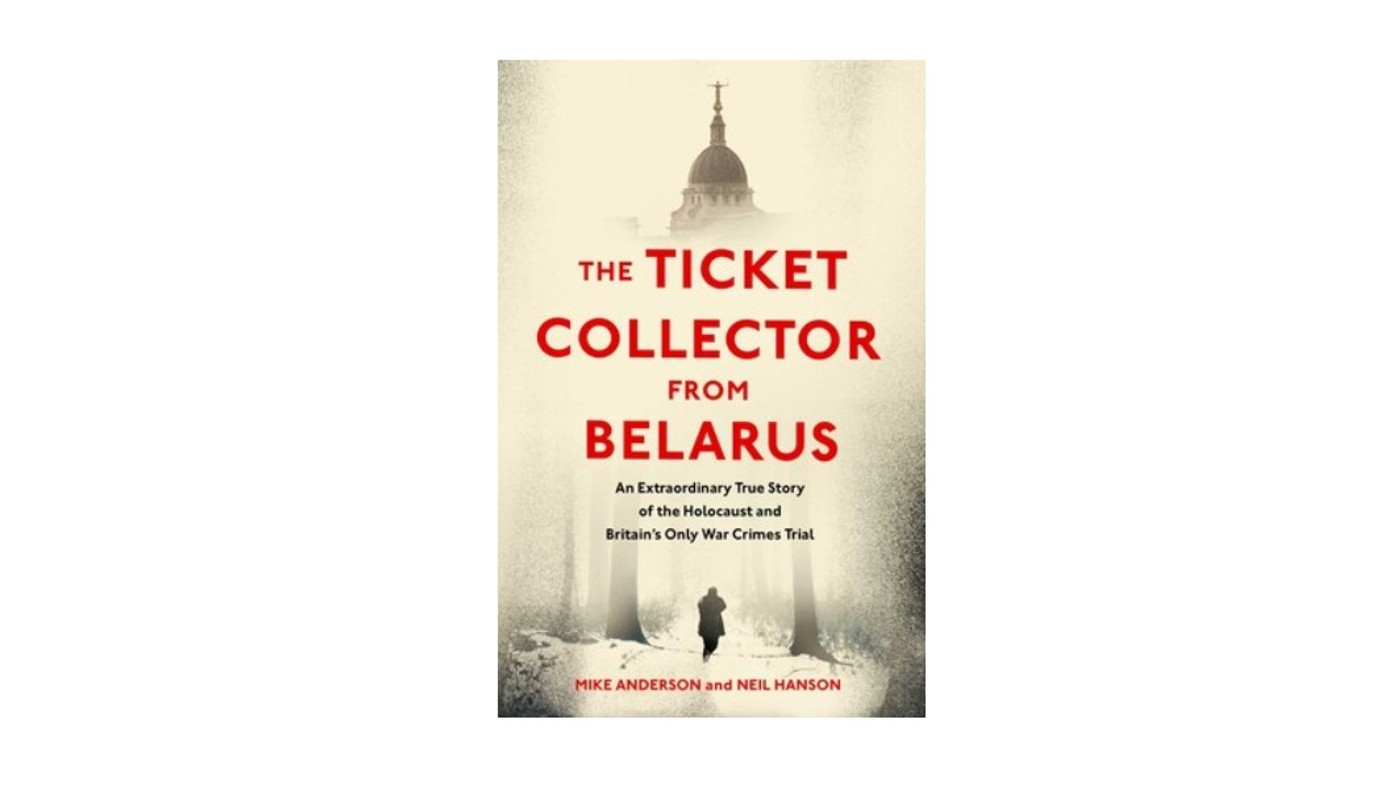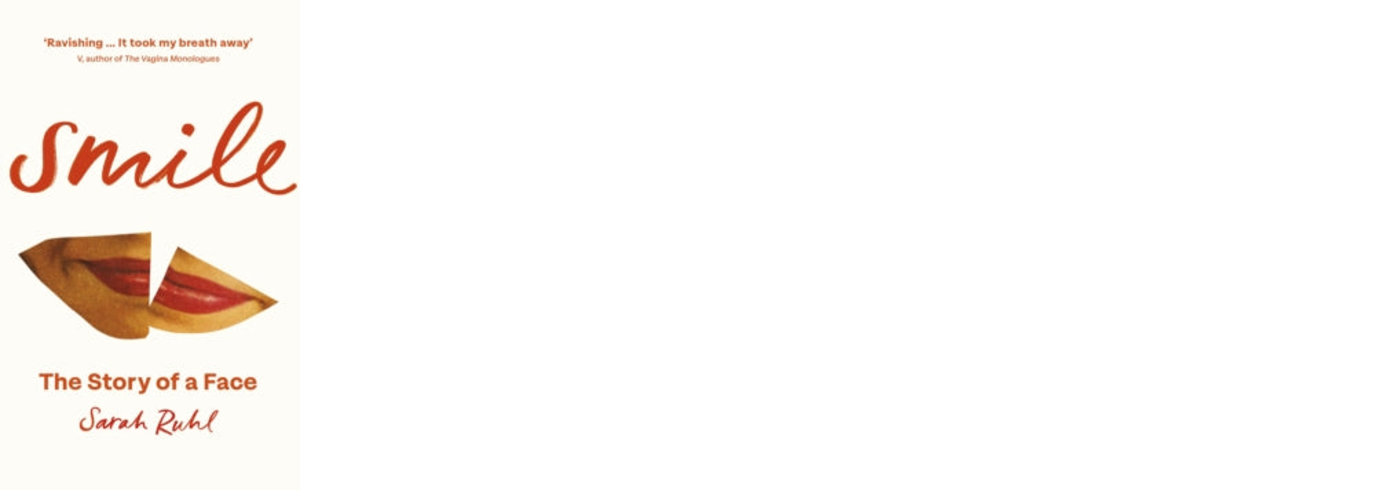The Ticket Collector from Belarus: a ‘heart-rending tale’
Mike Anderson and Neil Hanson delve into the early life of the prolific war criminal Anthony Sawoniuk

A free daily email with the biggest news stories of the day – and the best features from TheWeek.com
You are now subscribed
Your newsletter sign-up was successful
The morning after the US playwright Sarah Ruhl gave birth to twins in 2010, she was told by a lactation consultant that one of her eyes looked droopy, said Heidi Moss Erickson in The Washington Post. When she looked in the mirror, she was shocked by what she saw: “The left side of my face had fallen down.”
Then in her mid-30s, Ruhl had been struck with Bell’s palsy, a “fairly common” type of paralysis caused by nerve damage to one side of the face. Bell’s is usually temporary, but sometimes it persists for years.
Ruhl was one of the unlucky ones: for the next decade, she couldn’t smile at all, and today her face remains “asymmetric”. In her “moving” and “beautifully written memoir”, Ruhl explores the impact of the condition both on her sense of identity, and on her wider interactions with the world.
The Week
Escape your echo chamber. Get the facts behind the news, plus analysis from multiple perspectives.

Sign up for The Week's Free Newsletters
From our morning news briefing to a weekly Good News Newsletter, get the best of The Week delivered directly to your inbox.
From our morning news briefing to a weekly Good News Newsletter, get the best of The Week delivered directly to your inbox.
Ruhl’s career was thriving when Bell’s struck, said Alice O’Keeffe in The Guardian: one of her plays had just been nominated for a Tony. But she soon felt robbed of a key component of her armoury. At a photo shoot for nominees, photographers yelled to her on the red carpet: “What’s wrong with you? Can’t you smile for your Tony Award?”
No less “torturous” were the personal implications – especially the effect upon her children. How, she wondered, would they “know that their mother loves and delights in them” if they could never see her smile?
This book is much more than “just a medical memoir”. Ruhl ponders hard, quasi-philosophical questions – such as whether one can truly experience joy without smiling – but also writes well about the “chaos of her family life, in which theatre rewrites are cut short because all three children are vomiting”. With a “winning combination of wisdom and erudition”, Ruhl retraces a “journey many of us can relate to”.
Bodley Head 256pp £16.99; The Week Bookshop £13.99
A free daily email with the biggest news stories of the day – and the best features from TheWeek.com

The Week Bookshop
To order this title or any other book in print, visit theweekbookshop.co.uk, or speak to a bookseller on 020-3176 3835. Opening times: Monday to Saturday 9am-5.30pm and Sunday 10am-4pm.
-
 The 8 best TV shows of the 1960s
The 8 best TV shows of the 1960sThe standout shows of this decade take viewers from outer space to the Wild West
-
 Microdramas are booming
Microdramas are boomingUnder the radar Scroll to watch a whole movie
-
 The Olympic timekeepers keeping the Games on track
The Olympic timekeepers keeping the Games on trackUnder the Radar Swiss watchmaking giant Omega has been at the finish line of every Olympic Games for nearly 100 years
-
 6 exquisite homes with vast acreage
6 exquisite homes with vast acreageFeature Featuring an off-the-grid contemporary home in New Mexico and lakefront farmhouse in Massachusetts
-
 Film reviews: ‘Wuthering Heights,’ ‘Good Luck, Have Fun, Don’t Die,’ and ‘Sirat’
Film reviews: ‘Wuthering Heights,’ ‘Good Luck, Have Fun, Don’t Die,’ and ‘Sirat’Feature An inconvenient love torments a would-be couple, a gonzo time traveler seeks to save humanity from AI, and a father’s desperate search goes deeply sideways
-
 A thrilling foodie city in northern Japan
A thrilling foodie city in northern JapanThe Week Recommends The food scene here is ‘unspoilt’ and ‘fun’
-
 Tourangelle-style pork with prunes recipe
Tourangelle-style pork with prunes recipeThe Week Recommends This traditional, rustic dish is a French classic
-
 Samurai: a ‘blockbuster’ display of Japan’s legendary warriors
Samurai: a ‘blockbuster’ display of Japan’s legendary warriorsThe Week Recommends British Museum show offers a ‘scintillating journey’ through ‘a world of gore, power and artistic beauty’
-
 BMW iX3: a ‘revolution’ for the German car brand
BMW iX3: a ‘revolution’ for the German car brandThe Week Recommends The electric SUV promises a ‘great balance between ride comfort and driving fun’
-
 Arcadia: Tom Stoppard’s ‘masterpiece’ makes a ‘triumphant’ return
Arcadia: Tom Stoppard’s ‘masterpiece’ makes a ‘triumphant’ returnThe Week Recommends Carrie Cracknell’s revival at the Old Vic ‘grips like a thriller’
-
 My Father’s Shadow: a ‘magically nimble’ love letter to Lagos
My Father’s Shadow: a ‘magically nimble’ love letter to LagosThe Week Recommends Akinola Davies Jr’s touching and ‘tender’ tale of two brothers in 1990s Nigeria